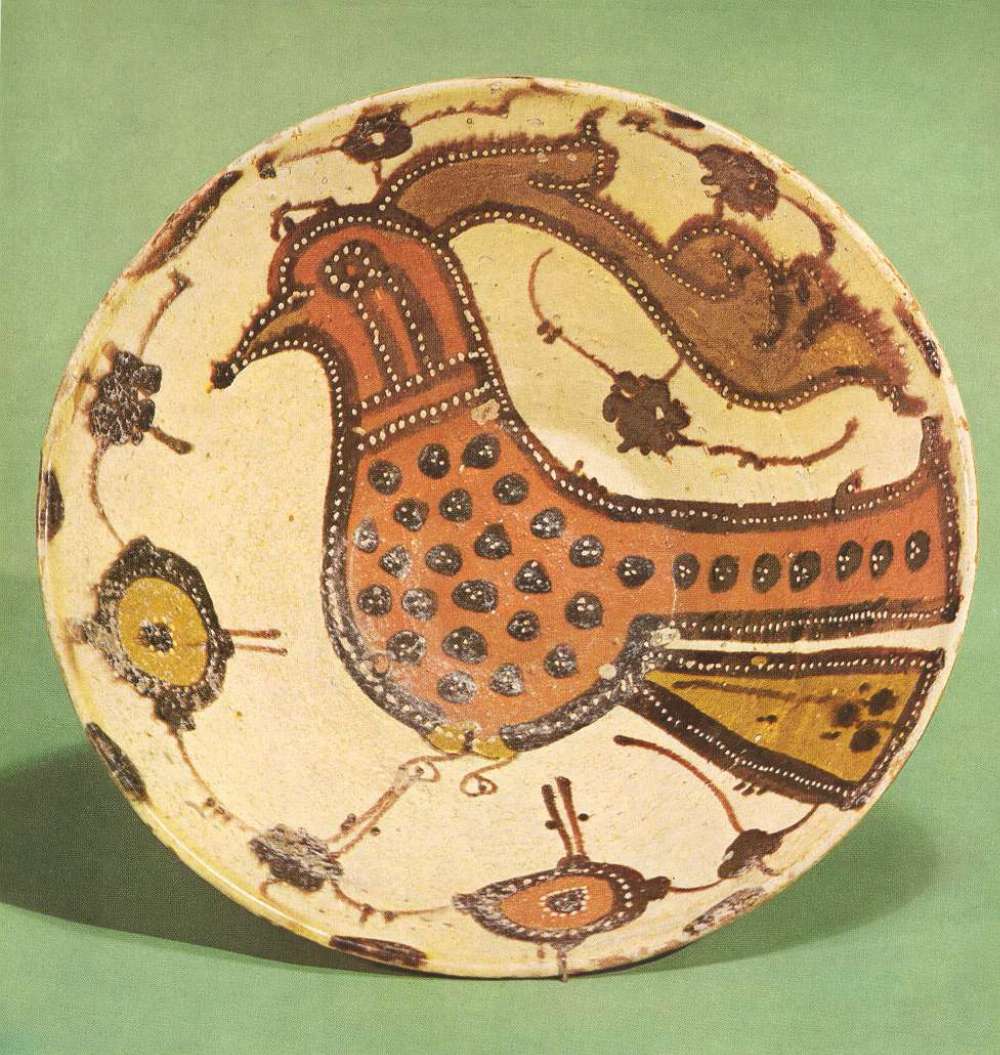
Lecture by Christopher Alexander at the Graduate School of Design, Harvard University: Visual material used in the lecture for illustrating his points
17/11/1982Twelve photographs used by Christopher Alexander in the lecture to illustrate examples of physical things which have deep structure, which he called ‘wholeness’. The examples he chose to show were all from traditional or historical societies, and were the following: .
Photograph:
- 1st example - Tantric painting, India, 18th century
- 2nd example - The Kizaemon tea bowl, Korea, 16th century
- 3rd example - Hand-painted tiles from the mosque of Kairouan, Tunisia
- 4th example - A Romanesque column capital
- 5th example - 14th-century brickwork, Afghanistan
- 6th example - Street view of the Alaeddin mosque, Konya
- 7th example - The Alaeddin mosque plan, Konya
- 8th example - 15th -century prayer rug, Anatolia
- 9th example - Persian bowl, 9th century
- 10th example - Shaker cabinet
- 11th example - 7th-century illuminated manuscript of a Durham Gospel fragment
- 12th example - Korean teapot stand
References
-
Geometry and Fifteen Fundamental Properties
Christopher Alexander recognized the importance of the geometry of centers and for years he was looking for the common structural features among buildings, paintings, streets, carpets, doors, windows, etc. which have "life" and "wholeness". He identified fifteen structural features which ...
-
Wholeness as a Tangible and Objective Quality: The Mirror of the Self
In any process of design or making, the next step which is most structure-enhancing, is that step which most intensifies the feeling of the emerging whole. What ultimately matters in this process is that the work produced generates feeling in ...
-
Ornament and Function as Products of Unfolding
Ornament arises as part of the design process, when a person is making and seeks to embellish this "something" while making it. It arises as a result of the latent centers in the uncompleted thing requiring still more centers, requiring ...
SEE ALL Scientific Research




 Go Back
Go Back